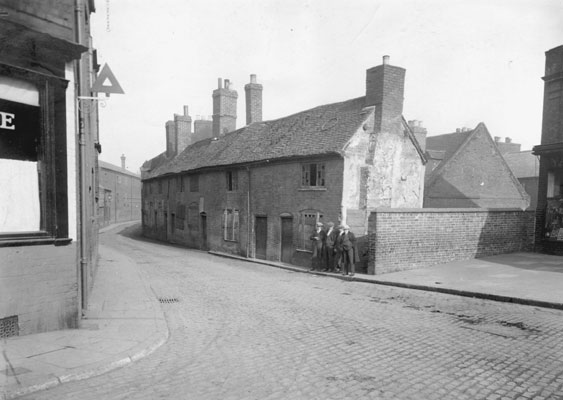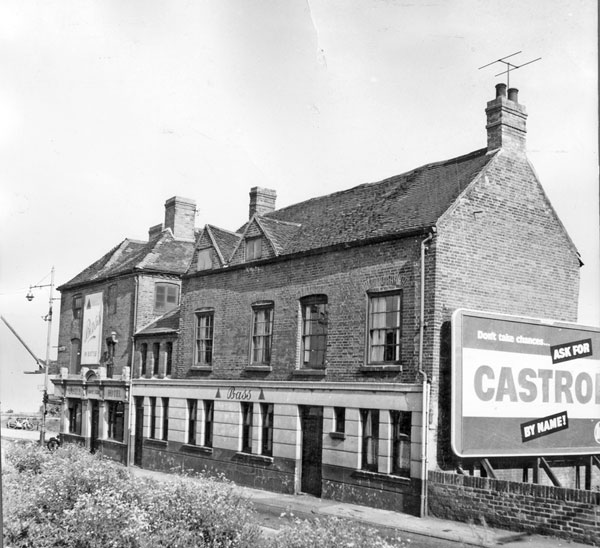|
dutchman
Spon End |
31 of 159
Sun 24th Jun 2012 10:44pm
Hello Anne
|
| Coventry Suburbs and Beyond - Radford | |
|
anne
coventry |
32 of 159
Sun 24th Jun 2012 10:56pm
Hello!
Thankyou, that's really helpful, Dutchman! |
| Coventry Suburbs and Beyond - Radford | |
|
dutchman
Spon End |
33 of 159
Sun 24th Jun 2012 11:10pm
Loads more here with pictures:
The Coventry We Have Lost - Radford
|
| Coventry Suburbs and Beyond - Radford | |
|
anne
coventry |
34 of 159
Sun 1st Jul 2012 12:01am
Hi All!
I'm fascinated by St. Nicholas Street, mainly because it appears on the earliest of Rob's maps. I have to go there 3 times a week and always think of the generations of people who have lived there and used it as a lane/road into town. The top end is almost like a country lane, amazing when it runs parallel with the Radford Road.
I've been reading on the 'British History Site' that there was a suburb of St. Nicholas. Could someone tell me more about that? Also, I have worked in the past at Cooper's Lodge, the big house on the corner of Light Lane. It belongs to 'Mind' now, but does anybody know when it was built and who owned it? I found out that there was a private school further up on the other side of the road at one point.
I'd love to hear anything you know, remember, and/or have photos of, on this topic |
| Coventry Suburbs and Beyond - Radford | |
|
dutchman
Spon End |
35 of 159
Sun 1st Jul 2012 12:32am
Hello Anne
|
| Coventry Suburbs and Beyond - Radford | |
|
flapdoodle
Coventry |
36 of 159
Sun 1st Jul 2012 10:49am
Isn't there a theory that Bishop Street/St Nicholas Street is the location of one of the earliest settlements in what became Coventry? I can't remember where I read it, though, as all my books are in a box somewhere in the attic! I believe there was some sort of Saxon find in the area. Which is no doubt in a museum in London somewhere.
I have a feeling the theory was in a small paper written by a historian, who was arguing that although Coventry is not mentioned as being a substantial settlement in the Doomsday book, there was, in fact, a large settlement in the area. From memory, his argument was that shortly after the Doomsday survey, the Normans moved their Bishop from Chester to Coventry - apparently, the Normans tended to have Bishops in larger towns so they would not have moved a Bishop to what was nothing more than a few farms. Part of the paper referenced St Nicholas Street/Bishop Street as being the location of a large settlement near to the growing Benedictine Priory founded by Godiva.
It was also common for the Normans to ignore large settlements in their survey, as perhaps large settlements around cathedrals were considered to be owned by the church. It wasn't a particularly accurate survey!
Of course, some folk still cling on to the idea that Coventry is a Roman town.
|
| Coventry Suburbs and Beyond - Radford | |
|
flapdoodle
Coventry |
37 of 159
Sun 1st Jul 2012 11:10am
Have you got any pictures of what was where the ringroad now runs in that area?
Destruction of buildings was one major aspect of the ring road, but the destruction of the city's urban grid has had far more consequences.
I found this paper here very enlightening - a case study of four British cities with ring roads, and Coventry stands out as having created a ring road that has complete changed the fabric of the city, whereas other cities were far less brutal and ensured that much of the existing urban grid remained in place:
Road Building and Urban Change
Some interesting stuff there, including a link between the ring road's construction and the decline of retail in Coventry, and also the reason why so many former busy commercial streets are now effectively 'dead'.
The plan a few years back to lower the raised section and build a boulevard lined with buildings in a very urban grid layout was the way forward. The council backed down with some sort of pathetic comment that 'Coventry's not ready for it.' Given that this stretch of road has been surrounded by economically dead land for the best part of 50 years, it makes you wonder just 'when' they think 'Coventry is ready for it'. |
| Coventry Suburbs and Beyond - Radford | |
|
dutchman
Spon End |
38 of 159
Sun 1st Jul 2012 6:25pm
On 1st Jul 2012 11:10am, flapdoodle said:
Have you got any pictures of what was where the ringroad now runs in that area?
Not really Flapdoodle. The area had already been cleared long before the Ring Road was built and in some cases even before the war. This is a view of Leicester Street taken before 1926 which may or may not have been typical of the area:
 This is a view of King Street looking towards Bishop Street from the St Nicholas Street side of the road:
This is a view of King Street looking towards Bishop Street from the St Nicholas Street side of the road:
 |
| Coventry Suburbs and Beyond - Radford | |
|
anne
coventry |
39 of 159
Sun 1st Jul 2012 8:27pm
On 1st Jul 2012 12:32am, dutchman said:
Hello Anne
That's very helpful, Dutchman. It puts it into context and I can now find out more. So you lived in one of the medieval suburbs-but not at that time, of course! |
| Coventry Suburbs and Beyond - Radford | |
|
anne
coventry |
40 of 159
Sun 1st Jul 2012 8:32pm
Flapdoodle. That's interesting! Shall do more research and post it! |
| Coventry Suburbs and Beyond - Radford | |
|
dutchman
Spon End |
41 of 159
Sun 1st Jul 2012 8:41pm
On 1st Jul 2012 8:27pm, anne said:
So you lived in one of the medieval suburbs-but not at that time, of course!
I've lived in or very-close to three of them Anne! |
| Coventry Suburbs and Beyond - Radford | |
|
anne
coventry |
42 of 159
Sun 1st Jul 2012 9:22pm
Wow! Just been looking up St Nicholas Church - and of course, it's where you told me the village originally was! |
| Coventry Suburbs and Beyond - Radford | |
|
flapdoodle
Coventry |
43 of 159
Sun 1st Jul 2012 9:51pm
The wikipedia entry for Radford claims it is a Roman settlement!
Radford is actually old English for Reed Ford, and a common place name.
Is there evidence of a Roman villa there? (The page claims Villa road is named affer a Roman villa! Very tenuous!) |
| Coventry Suburbs and Beyond - Radford | |
|
charabanc
Coventry |
44 of 159
Mon 2nd Jul 2012 9:01am
In Victorian times, St Nicholas Street was THE place to live - the Kenilworth Road of its time. Anyone who was anyone lived there, including Charles Bray, industrialist, newspaper owner, free thinker, friend and mentor of George Eliot (Bray's home was 'Rosehill'), John Sutton, chairman of the School Board and local benefactor who lived at 'Thornbank' and many other illustrious Coventry personalities. The only great house still standing is 'Highfield', once the home of the ribbon manufacturer William Franklin, which now houses offices. |
| Coventry Suburbs and Beyond - Radford | |
|
Midland Red
|
45 of 159
Mon 2nd Jul 2012 9:27am
Gosh! I was born in a nursing home on St Nicholas Street, so I feel a blue plaque coming on if the street is that important! |
| Coventry Suburbs and Beyond - Radford | |
Website & counter by Rob Orland © 2024
Load time: 641ms